
Pressure points for educational reform
It’s no secret that New Zealand’s compulsory education system is in disarray. Even worse, it’s hard to know where to begin to enact reform. Read more

Michael is a Senior Fellow at The New Zealand Initiative. He leads the Initiative’s work on education. He is a cognitive psychologist with a background in literacy research, educational assessment and psychometrics.
Prior to his time at the Initiative, he was the Associate Dean (Academic) of the Faculty of Education at Victoria University of Wellington. Between 2005 and 2011, he worked at the New Zealand Qualifications Authority (NZQA), where he developed a new, more reliable, marking system for NCEA examinations. In 2024, Michael chaired a Ministerial Advisory Group (MAG) for Education Minister Erica Stanford. The MAG advised on the development of a knowledge-rich curriculum for English and mathematics. Following that work, Michael is currently a member of the Curriculum Coherence group, which advises on the development of knowledge-rich curricula across all school subjects. Michael is also a member of a technical advisory group to NZQA on assessment for NCEA and New Zealand Scholarship.
In his time at The New Zealand Initiative, Michael has published reports on Modern Learning Environments, systems reform in education, teacher education, the use of AI in education, and pathways for industry training and apprenticeships.
Phone: 044990790

It’s no secret that New Zealand’s compulsory education system is in disarray. Even worse, it’s hard to know where to begin to enact reform. Read more
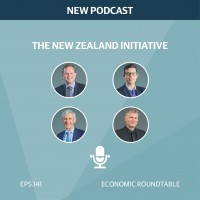
In this week's podcast we are diving into the much-anticipated policy shift announced by the country's new Prime Minister. The speculation has been building for months, with many wondering what policies will be scrapped and which ones will remain. Read more
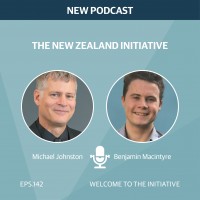
The Initiative team has welcomed a new addition to their team with the appointment of Benjamin Macintyre as a Research Assistant. Benjamin holds a Bachelor of Arts in Politics, International Studies, and Italian, and brings a fresh perspective to the team, with a focus on traditional political theory, modern political issues, international institutions, international political economy, and Italian language and culture. Read more

A logical fallacy is an invalid element in an argument. There are many kinds of fallacies. Read more
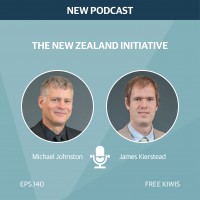
On many American university campuses over the last few years speakers are shouted down, students and professors say they are walking on eggshells and are afraid to speak honestly, and rates of anxiety, depression, and suicide are rising. Deplatforming in universities is also on the rise in New Zealand. Read more

New Zealand’s education system is in a state of deep malaise. For more than two decades, the literacy and numeracy achievement of our young people has been declining. Read more

I hated sitting exams at school and university. I would break out in sweats and get the shakes. Read more
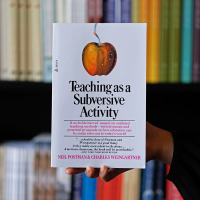
Many students … intuitively know what the schools do for them. They school them to confuse process and substance … to confuse teaching with learning, grade advancement with education, a diploma with competence, and fluency with the ability to say something new. Read more

This week's podcast is a Free Kiwis episode. Drs Michael Johnston and James Kierstead discussed a range of issues with Dr Eric Crampton. Read more

Holly Gooch is part of the KiwiNet Emerging Innovator programme to progress a project to help twice-exceptional secondary students. Michael Johnston sat down with Holly to talk about her PhD research project. Read more

History is replete with war motivated by religious disagreement. One example is the centuries-long clash between the Catholic and Protestant variants of Christianity. Read more

Michael Johnston sat down with Emma Chatterton, Strategic Project Lead at ImpactLab, to discuss her experience gaining registration and certification as an overseas-trained teacher. In addition, they discuss how New Zealand might improve teacher supply through immigration, and the country's growing truancy rate. Read more

Spending money does not, on its own, fix problems. It matters how that money is spent. Perhaps you think that is obvious. Read more

The debate over free speech at universities continues to rage across the English-speaking world, including in this country. But what does the data show? Read more
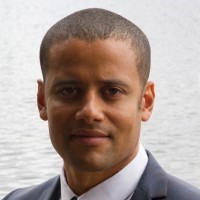
Hailed as the “first freedom,” free speech is the bedrock of democracy. But it is a challenging principle, subject to erosion in times of upheaval. Read more